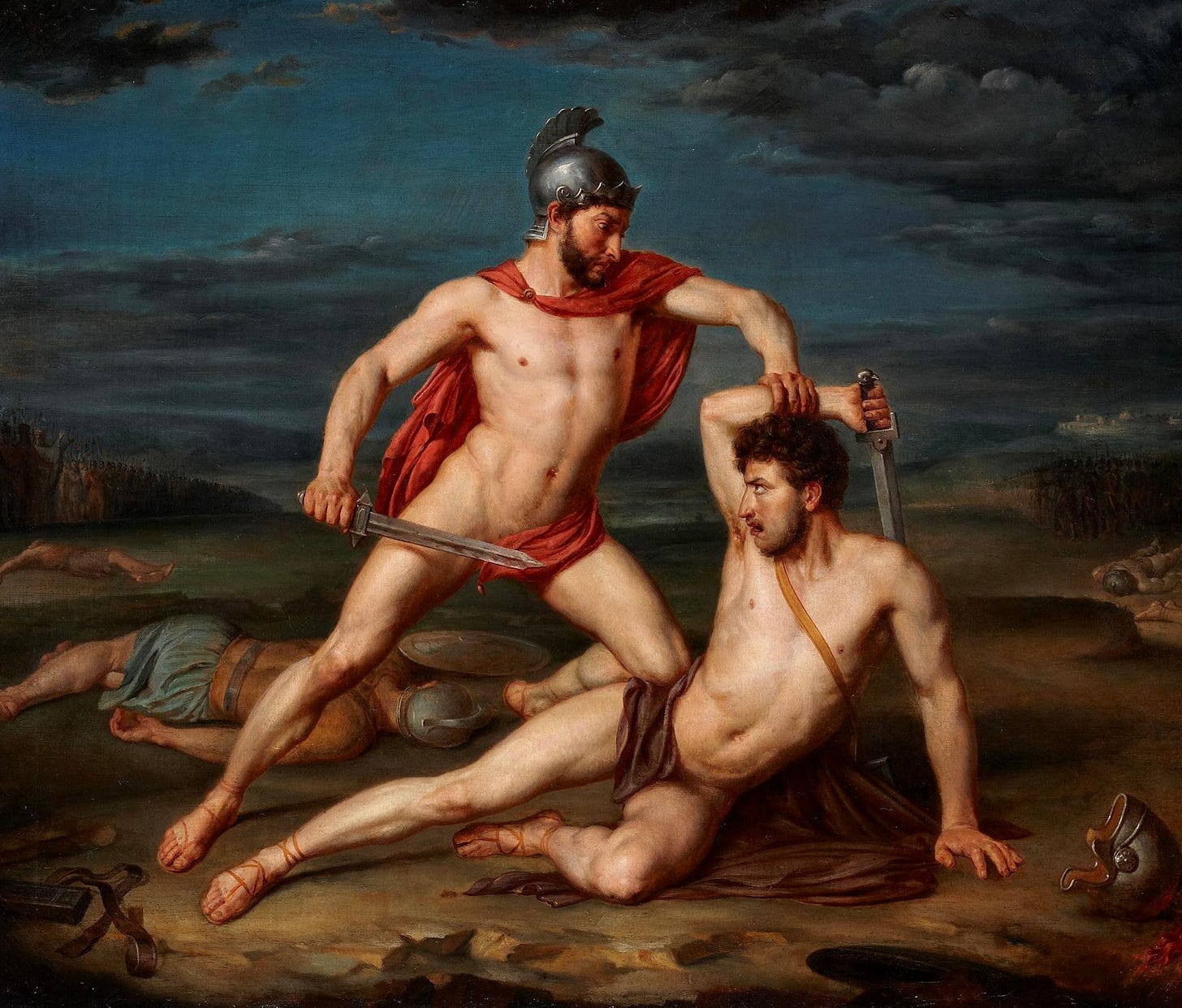The True Meaning of the Iliad
The nature of war, grief, and glory
More than 3,000 years after it was first composed, the Iliad still commands our attention.
The world it depicts is foreign in so many ways — a bronze age battlefield filled with angry gods, seaborne kings, and rituals of honor. And yet, beneath the shields and spears, Homer speaks to something that has never changed: man’s attraction to violence, and his search for meaning within it.
At the heart of the Iliad is a meditation on the nature of conflict. The poem neither glorifies war blindly, nor condemns it outright. Rather, it shows war plainly for what it is: both monstrous and magnificent, degrading and ennobling.
As the classicist Bernard Knox writes in his introduction to Robert Fagles’ translation of the Iliad:
...it is just as sentimental to pretend that war does not have its monstrous ugliness as it is to deny that it has its own strange and fatal beauty.
Today, we explore what Homer’s Iliad reveals about the nature of war and violence — and in turn, what it reveals about ourselves…
Keep reading with a 7-day free trial
Subscribe to The Culturist to keep reading this post and get 7 days of free access to the full post archives.




